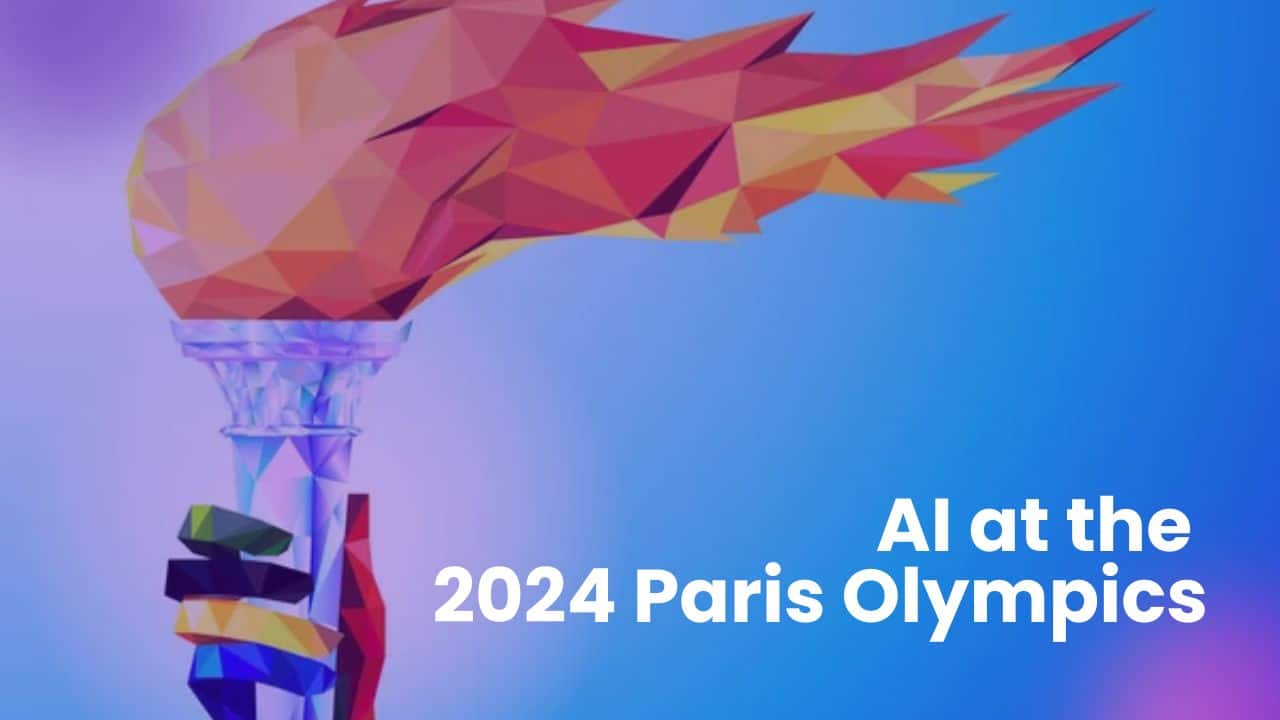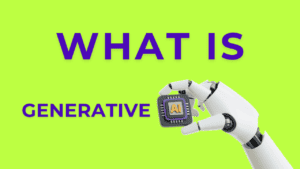AI at the 2024 Olympics: Transforming Sports and Fan Experience
The Olympic Games have always been a showcase of human achievement, pushing the boundaries of athletic performance and bringing nations together in friendly competition. As the world’s top athletes gather in Paris for the 2024 Summer Olympics, they’ll be joined by a new player on the field: artificial intelligence (AI).
From enhancing athlete performance to revolutionizing the viewer experience, AI is set to make its mark on the Games like never before.
The International Olympic Committee (IOC) is embracing this technological revolution with open arms. In April, they unveiled their “Olympic AI Agenda,” a comprehensive strategy to harness the potential of AI while mitigating potential risks. This forward-thinking approach aims to optimize various aspects of the Games, from talent detection to reducing human bias in judging.
Let’s explore how AI is transforming the Olympic experience for athletes, spectators, and organizers alike.
Empowering Athletes with AI-Driven Insights
Gone are the days when athletes relied solely on stopwatches and coaches’ intuition. Today’s Olympians have a powerful ally in their corner: AI-powered analytics. Intel’s 3D Athlete Tracking (3DAT) technology is at the forefront of this revolution, using AI to track 21 points across the human body and render precise physical movements in real-time.
This cutting-edge tech provides coaches and athletes with detailed biomechanical insights, allowing them to fine-tune their performance like never before. From optimizing stride length in sprinters to perfecting the angle of a diver’s entry, 3DAT is helping athletes push the boundaries of what’s possible in their respective sports.
But the benefits of AI extend far beyond performance analysis. The technology is now being used to design custom athletic gear, develop personalized nutrition plans, and even create optimized training schedules. This holistic approach to athlete preparation could lead to closer competition and potentially new world records in Paris.
Leveling the Playing Field with AI-Powered Scouting
One of the most exciting applications of AI in the Olympic realm is its potential to democratize talent identification. In March, the IOC piloted a groundbreaking scouting program in Senegal, using 3DAT technology to identify more than 40 children who showed promise as future Olympic athletes.
By analyzing simple drills like running and jumping, AI can spot potential that might otherwise go unnoticed.
This use of technology could help level the playing field between nations with established sports infrastructures and those with fewer resources. By removing some of the subjective elements from talent scouting, AI has the potential to uncover hidden gems in regions that have been historically underrepresented in elite sports.
Enhancing Officiating and Real-Time Decision Making
While AI is making waves in athlete preparation, its impact on officiating and in-game decisions is still evolving. Sports like football (soccer) have already embraced AI-assisted technologies for goal-line decisions, but implementing similar systems across the diverse range of Olympic events presents unique challenges.
Take water polo, for example. Referee Frank Ohme, who also happens to be an astrophysicist, points out the difficulties in applying AI to this fast-paced aquatic sport. The chaotic nature of the game, combined with the need for underwater imaging, makes it a complex problem for AI to solve – at least for now.
However, as AI technology continues to advance, we can expect to see more integration into officiating across various Olympic sports. The key to successful implementation will be clear communication and transparency, ensuring that athletes, coaches, and spectators understand how AI is being used to inform decisions.
Revolutionizing the Viewer Experience
For Olympic fans around the world, AI is set to transform how we watch and engage with the Games. Broadcasters are leveraging AI to create personalized highlight reels, tailored to individual viewer preferences.
Imagine being able to instantly access a compilation of every three-point shot made by your country’s basketball team, or every record-breaking swim in your favorite events.
Intel’s Geti computer-vision AI platform is making this dream a reality, allowing viewers to customize their Olympic experience like never before. This technology is particularly beneficial for smaller nations with limited production resources, democratizing access to high-quality content for fans worldwide.
But the innovations don’t stop there. AI is also powering the Olympics’ first end-to-end 8K live streaming experience, bringing unprecedented visual clarity to online audiences. And for those who crave data, AI-driven analytics will provide a wealth of real-time statistics and insights, enriching the viewing experience and sparking deeper conversations about athletic performance.
Perhaps one of the most futuristic applications of AI at the Paris Olympics is Intel’s volumetric capture technology. This 360-degree, 3D image-generating studio can scan athletes and render lifelike 3D versions of them. While it’s a fun novelty for athletes to share with fans back home, it also points to a future where holographic interviews and virtual meet-and-greets could become commonplace in sports broadcasting.
AI as a Digital Concierge for Athletes and Fans
The IOC is harnessing the power of AI to create a more seamless experience for both athletes and spectators. AthleteGPT, an AI chatbot accessible through the Athlete365 mobile app, serves as a 24/7 digital assistant for competitors.
From providing directions to venues to answering questions about rules and regulations, this AI-powered tool helps athletes navigate the complexities of the Olympic Village and beyond.
For fans with disabilities, AI is playing a crucial role in improving accessibility. Intel has launched new wayfinding technology that uses LiDAR devices and OpenVINO tech to provide turn-by-turn, real-time indoor navigation for those who are blind or have low vision.
This application of AI demonstrates its potential to make the Olympic experience more inclusive and enjoyable for all.
Addressing Challenges and Concerns
While the integration of AI into the Olympic Games brings numerous benefits, it also raises important questions about privacy, security, and fairness. The IOC and its technology partners are working diligently to address these concerns, implementing robust data protection measures and ensuring transparent communication about how AI is being used.
One area where AI is making a positive impact on athlete well-being is in the detection and prevention of online harassment. New AI-powered tools are being deployed to identify and remove abusive comments directed at athletes on social media platforms, creating a safer digital environment for competitors.
The Road Ahead: AI and the Future of the Olympics
As we look beyond the 2024 Paris Games, it’s clear that AI will play an increasingly significant role in shaping the future of the Olympics. From talent identification and training to event operations and fan engagement, the possibilities are nearly limitless.
The IOC’s commitment to exploring AI’s potential while mitigating risks sets a positive example for other sports organizations and large-scale events. By embracing innovation while staying true to the core values of the Olympic movement, the Games are positioning themselves at the forefront of the AI revolution in sports.
Conclusion: A New Era of Olympic Excellence
The 2024 Paris Olympics mark a turning point in the integration of AI into the world’s premier sporting event. As athletes push the boundaries of human performance, AI is there to support, analyze, and enhance their efforts. For fans, AI is creating more immersive, personalized, and accessible ways to experience the Games.
While challenges remain, the thoughtful and strategic implementation of AI technologies promises to usher in a new era of Olympic excellence. As we watch the world’s best athletes compete in Paris, we’ll also be witnessing the dawn of a more intelligent, data-driven, and inclusive Olympic Games.
The medals may still be won by human skill, determination, and spirit, but AI is quickly becoming an invaluable training partner, coach, and fan experience enhancer. The future of the Olympics is here, and it’s powered by artificial intelligence.



